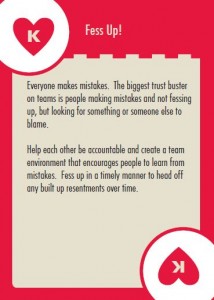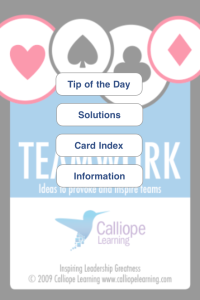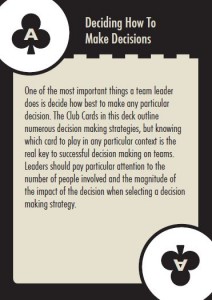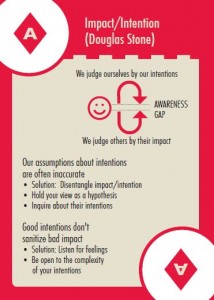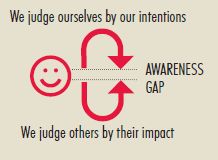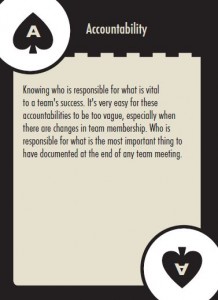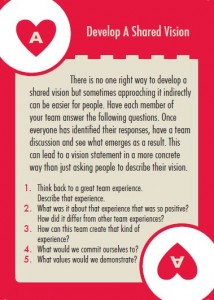Today’s Teamwork Explorer Tip is the King of Spades, Be Clear about the Goal. (Need to know more about our approach to teamwork?) See our Teamwork Explorer blog post.)
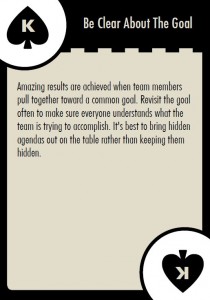
The idea of goal setting is not new, but what is challenging on teams (and generally in organizations) is getting everyone aligned and working towards the same goal. In Built to Last Collins and Porras described the importance of having visonary and emotionally compelling goals, or big hairy, audacious goals (BHAGs). As they suggest a BHAG is “clear and compelling, serves as a unifying focal point of effort, and acts as a clear catalyst for team spirit. It has a clear finish line, so the organization can know when it has achieved the goal; people like to shoot for finish lines.” In our experience, here are a few tips for identifying your team’s BHAGs:
- An obvious tip … but ensure your team goal is aligned to the overall goals of the organization. If that connection isn’t clear you are on shaky ground.
- Identify the common values of your team members. Goals need to be aligned with common values or you definitely won’t get people buying in. For example, if team members value social causes and your team’s big goal is to increase sales revenue you likely won’t get everyone on board. When you identify and discuss values, ensure you also talk about the beliefs and behaviors behind your value. For example, I value freedom because I believe that freedom contributes to my creativity and keeps me energized. That’s why I have chosen to remain an independent consultant for many years as the freedom to choose projects and organizations keeps me interested, engaged and continually learning. I have turned down many jobs in order to live my value of freedom.
- Find goals that tap into the passion of your team members. Start goal setting with a brainstorming starter like “What if we could …” Ensure that you suspend the “we can’t do that because …” critical analysis until you’ve had a good shot at the brainstorming!
- Ask yourselves how you will know if you are making progress toward goals and then build in celebrations when you reach them.
- At the end of meetings, ask yourselves how the meeting helped to move you closer to your goals. If it didn’t, you need to change your meetings and/or revisit your goals.
King of Spades – Be Clear about the Goal
Amazing results are achieved when team members pull together toward a common goal. Revisit the goal often to make sure everyone understands what the team is trying to accomplish. It’s best to bring hidden agendas out on the table rather than keeping them hidden.
Are you clear about the goal on your team? What tips do you have for helping team members stay focused?
Curious about the rest of the tips and want to know all about them now? Then download the free Teamwork Explorer iPhone app now! More interested in the actual paper based set of cards? Visit our store!
